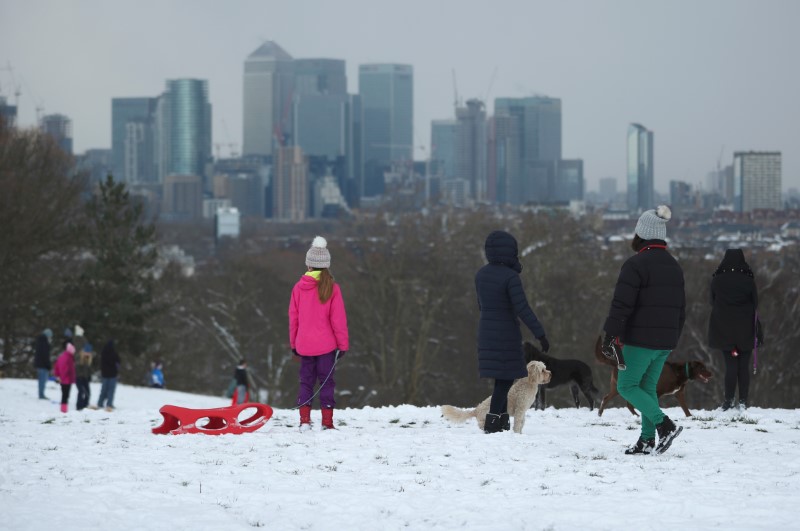Investing.com’s stocks of the week
By David Milliken
LONDON, April 5 (Reuters) - Heavy snow and weak consumer demand weighed on British services last month, which grew at the slowest rate since just after the vote to leave the European Union in June 2016, a major survey showed on Thursday.
The IHS Markit/CIPS services Purchasing Managers' Index (PMI) tumbled to 51.7 in March from February's reading of 54.5, its lowest reading since July 2016 and a bigger fall than any economist had forecast in a Reuters poll.
Britain's construction PMI showed a similar drop on Wednesday, although manufacturing held up better.
Looking at the first three months of 2018 as a whole, the figures suggest the British economy grew at a quarterly rate of slightly less than 0.3 percent, down from an already-modest 0.4 percent at the end of 2017, IHS Markit said.
"The UK economy iced up in March, suffering the weakest increase in business activity since the Brexit vote amid widespread disruptions caused by some of the heaviest snowfall in years," Chris Williamson, IHS Markit's chief business economist.
A Siberian weather system that meteorologists called "the Beast from the East" brought snow and rare sub-zero temperatures to much of Britain in late February and early March.
Provisional PMI data for the euro zone have also undershot economists' forecasts due to the weather, but economists predict the bloc will outpace Britain again in the first quarter with growth of 0.5 percent.
IHS Markit said British services reported weak consumer demand as well as concern about the country's departure from the EU in a year's time as being behind the weakest growth in new orders since July 2016.
Broader business sentiment fell to its joint-lowest level since July 2016.
However, the weak British figures are unlikely to dissuade the Bank of England from raising interest rates next month for only the second time since the global financial crisis.
The BoE said last month that while the snow was likely to cause first-quarter economic growth to slow to 0.3 percent, "an ongoing tightening of monetary policy" would be needed to bring above-target inflation back to its 2 percent target.
High inflation caused by the pound's fall after the Brexit vote has sapped consumer demand over the past year, and British growth has slowed to be the weakest of any major economy at a time of a global upturn.
